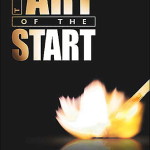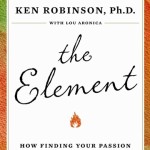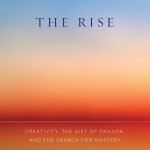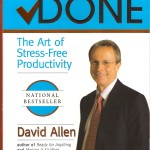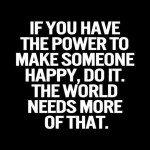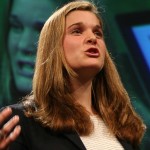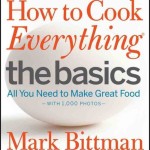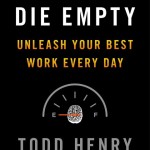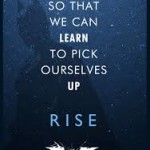By the time of his death, Nelson Mandela had come to be widely considered “the father of the nation” within South Africa, and “the founding father of democracy”, being seen as “the national liberator, the Savior, its Washington and Lincoln rolled into one”.
Mandela’s biographer Anthony Sampson commented that even during his life, a myth had developed around him that turned him into “a secular saint” and which was “so powerful that it blurs the realities.”
The Google Doodle today for Nelson Mandela’s Birthday
Nelson Rolihlahla Mandela was born in Transkei, South Africa on July 18, 1918. His father was Hendry Mphakanyiswa of the Tembu Tribe. Mandela himself was educated at University College of Fort Hare and the University of Witwatersrand where he studied law. He joined the African National Congress in 1944 and was engaged in resistance against the ruling National Party’s apartheid policies after 1948. He went on trial for treason in 1956-1961 and was acquitted in 1961.
“Education is the most powerful weapon which you can use to change the world.”
After the banning of the ANC in 1960, Nelson Mandela argued for the setting up of a military wing within the ANC. In June 1961, the ANC executive considered his proposal on the use of violent tactics and agreed that those members who wished to involve themselves in Mandela’s campaign would not be stopped from doing so by the ANC. This led to the formation of Umkhonto we Sizwe. Mandela was arrested in 1962 and sentenced to five years’ imprisonment with hard labour. In 1963, when many fellow leaders of the ANC and the Umkhonto we Sizwe were arrested, Mandela was brought to stand trial with them for plotting to overthrow the government by violence. His statement from the dock received considerable international publicity. On June 12, 1964, eight of the accused, including Mandela, were sentenced to life imprisonment. From 1964 to 1982, he was incarcerated at Robben Island Prison, off Cape Town; thereafter, he was at Pollsmoor Prison, nearby on the mainland.
During his years in prison, Nelson Mandela’s reputation grew steadily. He was widely accepted as the most significant black leader in South Africa and became a potent symbol of resistance as the anti-apartheid movement gathered strength. He consistently refused to compromise his political position to obtain his freedom.
Nelson Mandela was released on February 11, 1990. After his release, he plunged himself wholeheartedly into his life’s work, striving to attain the goals he and others had set out almost four decades earlier. In 1991, at the first national conference of the ANC held inside South Africa after the organization had been banned in 1960, Mandela was elected President of the ANC while his lifelong friend and colleague, Oliver Tambo, became the organisation’s National Chairperson. [From: Nobelprize.org]
“When a man is denied the right to live the life he believes in, he has no choice but to become an outlaw.”
Personal life
Mandela was a private person who often concealed his emotions and confided in very few people. Privately, he lived an austere life, refusing to drink alcohol or smoke, and even as President made his own bed, although was also renowned for his mischievous sense of humor.
He was known for being both stubborn and loyal, and at times exhibited a quick temper. He was typically friendly and welcoming, and appeared relaxed in conversation with everyone, including his opponents. Constantly polite and courteous, he was attentive to all, irrespective of their age or status, and often talked to children or servants.
In later life he always looked for the best in people, even defending political opponents to his allies, who sometimes thought him too trusting of others.
He was highly image conscious, and throughout his life always sought out fine quality clothes, with many commentators believing that he carried himself in a regal manner.
His official biographer Anthony Sampson commented that he was a “master of imagery and performance”, excelling at presenting himself well in press photographs and producing soundbites.
In describing his life, Mandela stated that “I was not a messiah, but an ordinary man who had become a leader because of extraordinary circumstances.”
Mandela was married three times, fathered six children, had 17 grandchildren, and many great-grandchildren. He could be stern and demanding of his children, although he was more affectionate with his grandchildren. His first marriage was to Evelyn Ntoko Mase in October 1944; they divorced after 13 years in 1957 under the multiple strains of his adultery and constant absences, devotion to revolutionary agitation, and the fact that she was a member of the Jehovah’s Witnesses, a religion requiring political neutrality. The couple had two sons whom Mandela survived, Madiba “Thembi” Thembekile (1945–1969) and Makgatho Mandela (1950–2005); his first son died in a car crash, and his second son died of AIDS. The couple had two daughters, both named Makaziwe Mandela (born 1947 and 1954); the first died at the age of nine months, the second, known as “Maki”, survived Mandela. Makgatho’s son, Mandla Mandela, became chief of the Mvezo tribal council in 2007.
Mandela’s second wife, Winnie Madikizela-Mandela, also came from the Transkei area, although they, too, met in Johannesburg, where she was the city’s first black social worker. They had two daughters, Zenani (Zeni), born 4 February 1959, and Zindziswa (Zindzi) Mandela-Hlongwane, born 1960. Zindzi was only 18 months old when her father was sent to Robben Island. Later, Winnie was deeply torn by family discord which mirrored the country’s political strife; separation (April 1992) and divorce (March 1996), fuelled by political estrangement. Mandela’s third wife was Graça Machel (née Simbine), whom he married on his 80th birthday in 1998.
“I learned that courage was not the absence of fear, but the triumph over it. The brave man is not he who does not feel afraid, but he who conquers that fear.”
Influence and legacy
By the time of his death, Mandela had come to be widely considered “the father of the nation” within South Africa, and “the founding father of democracy”, being seen as “the national liberator, the Savior, its Washington and Lincoln rolled into one”. Mandela’s biographer Anthony Sampson commented that even during his life, a myth had developed around him that turned him into “a secular saint” and which was “so powerful that it blurs the realities.” Within a decade after the end of his Presidency, Mandela’s era was being widely thought of as “a golden age of hope and harmony”. Across the world, Mandela earned international acclaim for his activism in overcoming apartheid and fostering racial reconciliation, coming to be viewed as “a moral authority” with a great “concern for truth”.
Throughout his life, Mandela had also faced criticism. Margaret Thatcher attracted international attention for describing the ANC as “a typical terrorist organisation” in 1987; although she later called on Botha to release Mandela. On his death, various Twitter users repeated the denunciations that he was a communist and a terrorist, while various anti-abortion activists across the world took the opportunity to condemn him for supporting the 1996 Choice of Termination of Pregnancy Act. Mandela has also been criticized for his friendship with political leaders such as Fidel Castro, Muammar Gaddafi, Akbar Hashemi Rafsanjani, and Suharto – deemed dictators by critics – as well as his refusal to condemn their human rights violations.
“It always seems impossible until it’s done.”
Orders, decorations, and monuments
On 16 December 2013, Reconciliation Day, a 9-meter-high, bronze statue of Mandela was unveiled at the Union Buildings by President Jacob Zuma. In 2004, Johannesburg granted Mandela the freedom of the city, and the Sandton Square shopping center was renamed Nelson Mandela Square, after a Mandela statue was installed there. In 2008, another Mandela statue was unveiled at Drakenstein Correctional Center, formerly Victor Verster Prison, near Cape Town, standing on the spot where Mandela was released from the prison.
In 1993, he received the joint Nobel Peace Prize with de Klerk. In November 2009, the United Nations General Assembly proclaimed Mandela’s birthday, 18 July, as “Mandela Day”, marking his contribution to the anti-apartheid struggle. It called on individuals to donate 67 minutes to doing something for others, commemorating the 67 years that Mandela had been a part of the movement.
Awarded the US Presidential Medal of Freedom and appointment to the Order of Canada, he was also the first living person to be made an honorary Canadian citizen. Mandela was the last recipient of the Soviet Union’s Lenin Peace Prize and the first recipient of the Al-Gaddafi International Prize for Human Rights. In 1990, he received the Bharat Ratna Award from the government of India and, in 1992, received Pakistan’s Nishan-e-Pakistan. The same year, he was awarded the Atatürk Peace Award by Turkey; he at first refused the award, citing human rights violations committed by Turkey at the time, but later accepted the award in 1999. Queen Elizabeth II appointed him as a Bailiff Grand Cross of the Order of St. John (upon the recommendation of the order’s Honors and Awards Committee) and granted him membership in the Order of Merit (a personal gift of the monarch).
“A good head and good heart are always a formidable combination. But when you add to that a literate tongue or pen, then you have something very special.”
Tributes by musicians
Many artists have dedicated songs to Mandela. One of the most popular was from The Special AKA who recorded the song “Free Nelson Mandela” in 1983, which Elvis Costello also recorded and had a hit with. Stevie Wonder dedicated his 1985 Oscar for the song “I Just Called to Say I Love You” to Mandela, resulting in his music being banned by the South African Broadcasting Corporation. In 1985, Youssou N’Dour’s album Nelson Mandela was the Senegalese artist’s first US release. Other artists who released songs or videos honoring Mandela include Johnny Clegg, Hugh Masekela, Brenda Fassie, Khadja Nin, Beyond, Nickelback, Raffi, and Ampie du Preez and AB de Villiers. South African songstress Zahara, an ambassador for the Nelson Mandela Children’s Hospital, released Nelson Mandela, an extended play that pays tribute to Mandela whilst celebrating his lifetime accomplishments. The EP’s lead single titled “Nelson Mandela” was released at a time when Mandela was critically ill but stable at the Medi-Clinic Heart Hospital in Pretoria.
“No one is born hating another person because of the color of his skin, or his background, or his religion. People must learn to hate, and if they can learn to hate, they can be taught to love, for love comes more naturally to the human heart than its opposite.”
Cinema and television
Mandela has been depicted in cinema and television on multiple occasions.
- He was portrayed by Danny Glover in the 1987 HBO telefilm Mandela.
- The 1997 film Mandela and de Klerk starred Sidney Poitier as Mandela,
- Dennis Haysbert played him in Goodbye Bafana (2007).
- In the 2009 BBC telefilm Mrs Mandela, Mandela was portrayed by David Harewood, and Morgan Freeman portrayed him in Invictus (2009).
- Terrence Howard portrayed him in the 2011 film Winnie Mandela.
- He is portrayed by Idris Elba in the 2013 film Mandela: Long Walk to Freedom.
[From: Wikipedia.com]
Books
- Long Walk to Freedom
- Conversations With Myself
- Nelson Mandela’s Favorite African Folktales
- No Easy Walk to Freedom
- In His Own Words
- Long Walk To Freedom (Volume 1: 1918-1962)
- Mandela: An Illustrated Autobiography
- Long Walk to Freedom (Volume 2: 1962 – 1994)
- The Struggle is My Life
- Notes to the Future: The Authorized Book of Selected Quotations
- A Prisoner in the Garden: Photos, Letters, and Notes
- How Far We Slaves Have Come!: South Africa and Cuba in Today’s World
- Nelson Mandela, Speeches 1990: “Intensify The Struggle To Abolish Apartheid”
- Nelson Mandela: Words of Wisdom; Selected Quotes
- Nelson Mandela: I Am Prepared to Die
- Nelson Mandela Speaks: Forging a Democratic, Nonracial South Africa
- Nelson Mandela
- Le Temps est venu
- Quotes of Nelson Mandela
- Mandela: The Long Walk to Freedom: The Book of the Film
- Nelson Mandela by Himself: The Authorised Book of Quotations
- The Ring of the King: A Story From Nelson Mandela’s Favorite African Folktales
- Asmodeus and the Bottler of Djinns: A Story From Nelson Mandela’s Favorite African Folktales
- Meine Waffe ist das Wort: Mit einem Vorwort von Desmond Tutu
- The Essential Nelson Mandela
- A Time to Build: Addresses by the President, Mr. Nelson R. Mandela, at his Inauguration, the Opening of Parliament (May 1994) and at the OAU Meeting in Tunis (June 1994)
- The Lion, the Hare, and the Hyena: A Story From Nelson Mandela’s Favorite African Folktales
- Un Ideal Por El Cual Vivo
[From: Goodreads.com]
“For to be free is not merely to cast off one’s chains,
but to live in a way that respects and enhances the freedom of others.”
Political ideology
Mandela was an African nationalist, an ideological position he held since joining the ANC, also being a democratic socialist, thereby being “openly opposed to capitalism, private land-ownership and the power of big money”. Mandela was influenced by Marxism, and during the revolution he advocated scientific socialism. During the Treason Trial, he denied being a communist, although later historians and biographers believed that this was a lie; biographer David Jones Smith stated that Mandela “embraced communism and communists” in the late 1950’s and early 1960’s, while historian Stephen Ellis found evidence that he had been an active member of the South African Communist Party (SACP). This was confirmed after his death by the SACP and the ANC. According to the SACP, he was not only a member of the party, but also served on the party’s Central Committee, when he was arrested in 1962 and this was denied for political reasons.
In the 1955 Freedom Charter, which Mandela had helped create, it called for the nationalization of banks, gold mines, and land, believing this necessary to ensure equal distribution of wealth. Despite these beliefs, Mandela nationalized nothing during his presidency, fearing that this would scare away foreign investors. This decision was in part influenced by the fall of the socialist states in the Soviet Union and Eastern Bloc during the early 1990s. Although he presented himself in an autocratic manner in several speeches, Mandela was a devout believer in democracy and abided by majority decisions even when deeply disagreeing with them. He held a conviction that “inclusivity, accountability and freedom of speech” were the fundamentals of democracy, and was driven by a belief in natural and human rights. This belief drove him to not only pursue racial equality but also to promote gay rights as part of the post-apartheid reforms.
“Do not judge me by my successes, judge me by how many times I fell down and got back up again.”
Death and funeral
After suffering from a prolonged respiratory infection, Mandela died on 5 December 2013 at the age of 95. He died at around 20:50 local time (UTC+2) at his home in Houghton, Johannesburg, surrounded by his family. His death was announced on television by President Jacob Zuma.
On 6 December 2013, President Zuma announced a national mourning period of ten days, with the main event held at the FNB Stadium in Johannesburg on 10 December 2013. He declared Sunday 8 December 2013 a national day of prayer and reflection. Mandela’s body lay in state from 11–13 December at the Union Buildings in Pretoria and a state funeral was held on 15 December 2013 in Qunu, South Africa. Approximately 90 representatives of foreign states travelled to South Africa to attend memorial events.
Mandela’s $4.1 million estate was left to his widow, other family members, staff, and educational institutions. [From: Wikipedia.com]
“There is no passion to be found playing small – in settling for a life that is less than the one you are capable of living.”
He was loved and admired the world over, profiled in books and movies, and showered with awards and accolades. But even the most public of personalities have little-known facts buried in their biographies.
Here are 10 surprising facts you probably didn’t know about Nelson Mandela:
1. He lived up to his name: Mandela’s birth name was Rolihlahla. In his Xhosa tribe, the name means pulling the branch of a tree or troublemaker . (The name “Nelson” was given to him by his teacher on his first day of elementary school. It’s not clear why she chose that particular name. It was the 1920s, and African children were given English names so colonial masters could pronounce them easily).
2. He had a cameo in a Spike Lee film: He had a big part in Spike Lee’s 1992 biopi c “Malcolm X.” At the very end of the movie, he plays a teacher reciting Malcolm X’s famous speech to a room full of Soweto school kids. But the pacifist Mandela wouldn’t say “by any means necessary.” So Lee cut back to footage of Malcolm X to close out the film.
3. There’s a woodpecker named after him: From Cape Town to California, streets named after Mandela abound. But he’s also been the subject of some rather unusual tributes . Last year, scientists named a prehistoric woodpecker after him: Australopicus nelsonmandelai. In 1973, the physics institute at Leeds University named a nuclear particle the ‘Mandela particle.’
4. He married a first lady: Before tying the knot with Mandela on his 80th birthday, Graca Machel was married to Mozambique President Samora Machel. Her marriage to Mandela after her husband’s death means she has been the first lady of two nations.
5. He was a master of disguise: When Mandela was eluding authorities during his fight against apartheid, he disguised himself in various ways, including as a chauffeur. The press nicknamed him “the Black Pimpernel” because of his police evasion tactics. “I became a creature of the night. I would keep to my hideout during the day, and would emerge to do my work when it became dark,” he says in his biography, “Long Walk to Freedom.”
6. A bloody sport intrigued him: Besides politics, Mandela’s other passion was boxing. “I did not like the violence of boxing. I was more interested in the science of it – how you move your body to protect yourself, how you use a plan to attack and retreat, and how you pace yourself through a fight,” he says in his biography.
7. His favorite dish is probably not yours: He’s been wined and dined by world leaders. But what Mandela loved eating most was tripe . Yup, the stomach lining of farm animals.
8. He quit his day job: He studied law at the University of Witwatersrand in Johannesburg and opened the nation’s first black law firm in the city in 1952.
9. He was on the U.S. terror watch list: Mandela wasn’t removed from the U.S. terror watch list until 2008 — at age 89. He and other members of the African National Congress were placed on it because of their militant fight against apartheid.
10. He drew his inspiration from a poem: While he was in prison, Mandela would read William Ernest Henley’s “Invictus” to fellow prisoners. The poem, about never giving up, resonated with Mandela for its lines “I am the master of my fate. I am the captain of my soul.” You may know it from the movie by the same name starring Morgan Freeman as Mandela. [From: Edition.cnn.com]
“If you talk to a man in a language he understands, that goes to his head. If you talk to him in his language, that goes to his heart.”
Now Watch His Video:
If you like this story, CLICK HERE to join the tribe of success-minded people just like you. You will love our weekly quick summaries of top stories, talks, books, movies, music and more with handy downloadable guides, cheat sheets, cliffs notes and quote books.











